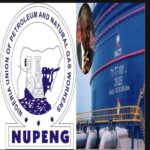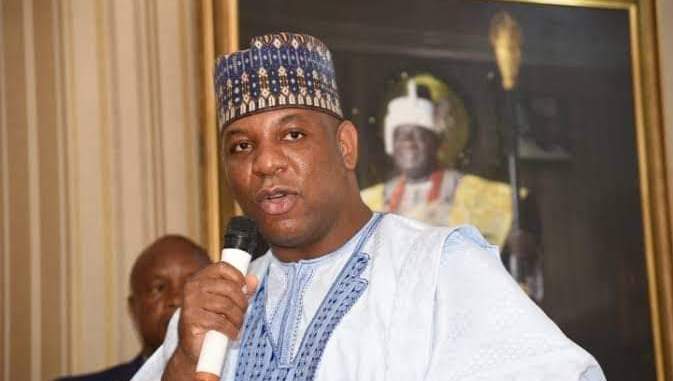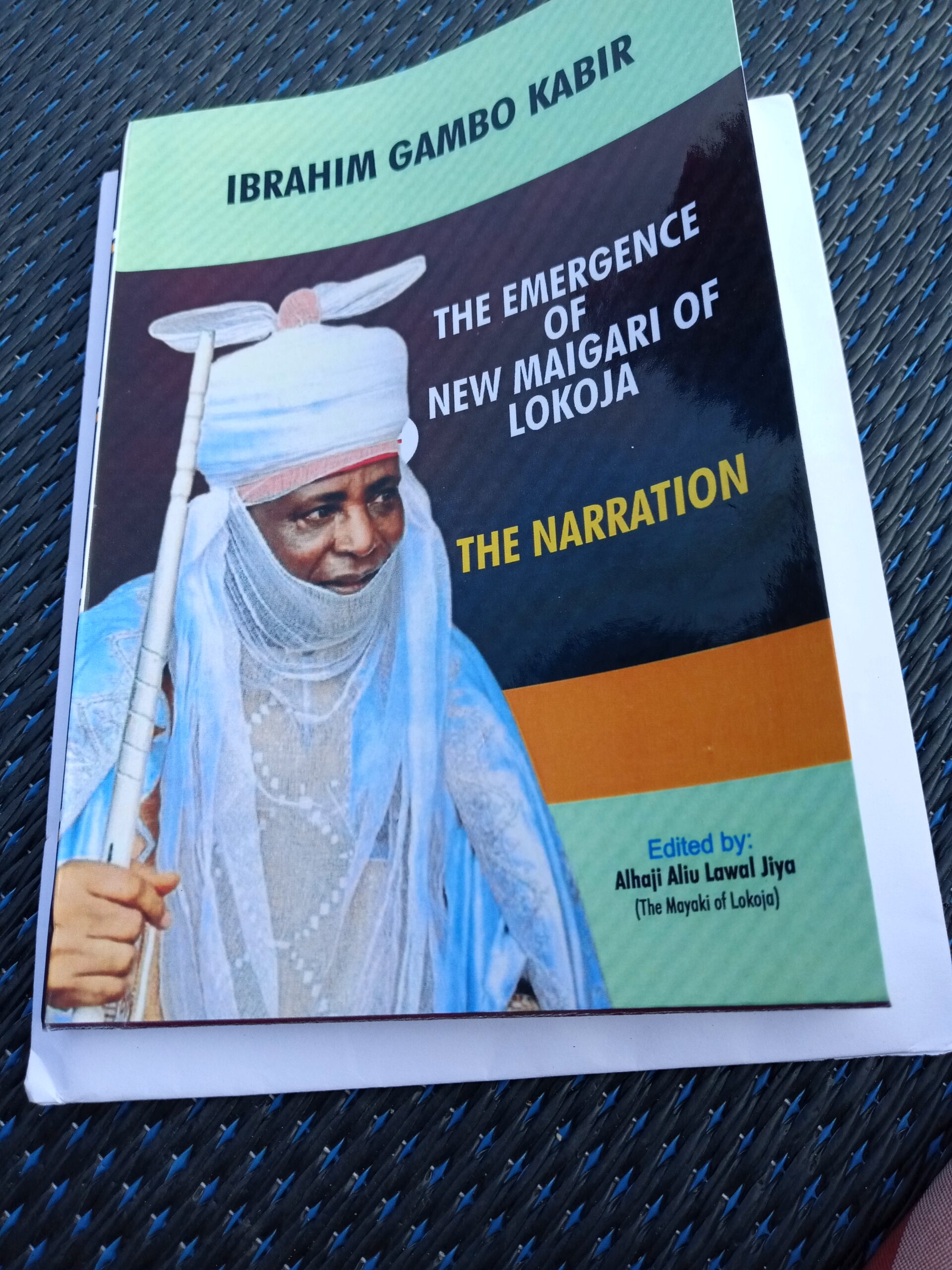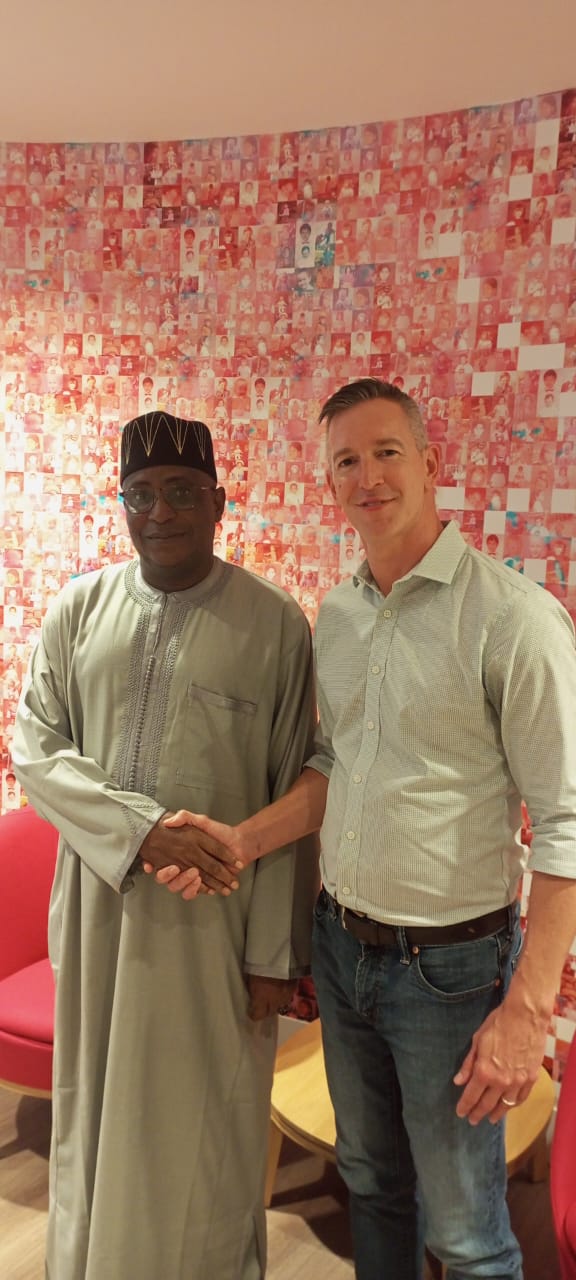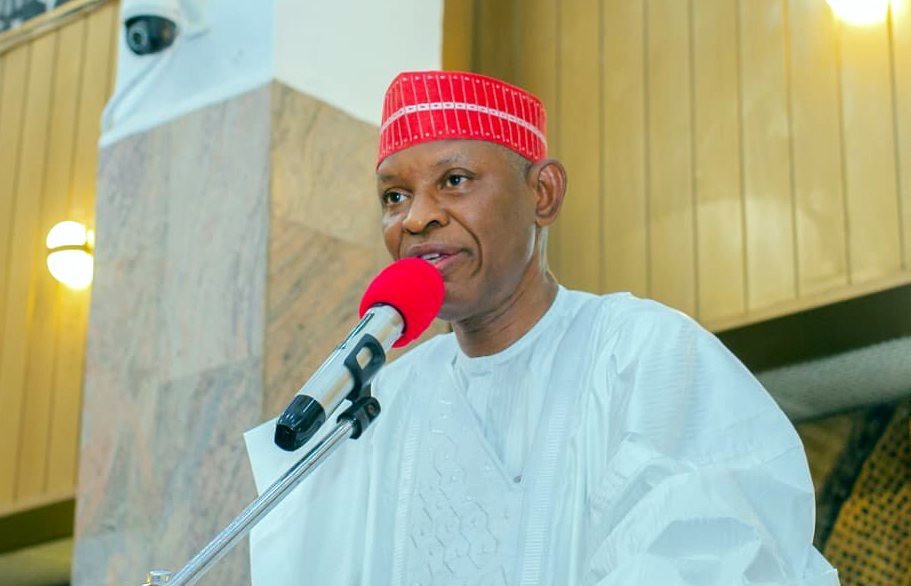Strategies to facilitate the completion of the Ajaokuta steel company and its benefits to Kogi State.
Congratulation to Alhaji Shuaibu Abubakar Audu, the new Minister of Steel Development.
The recreation of the ministry is a significant milestone in the Governments effort to truly promote and enhance the steel industry in the country. The appointment will bring fresh perspective and ideas to address the challenges faced by the steel industry.
We in Kogi state are pleased that once again a Kogite will be at the helms of a sector which would be responsible for the dreamed industrialization of Nigeria. This is a crucial step towards achieving the goals and objectives of the Tinubu Administration.
The first Kogite appointed into this position was Alhaji Mamman Ali Makele, B.Sc, MPA, MA, LLB, Administrator, Politician, and Banker born in Agbaja, Lokoja Local Government Area. He served as the Minister of Steel from 1979-1983 under the Shehu Shagari regime who initially created the ministry. During his tenure, Makele set up the ministry and made significant achievements in the steel industry, contributing to the development and growth of Nigeria’s steel sector.
Some of Makele’s notable achievements were as follows:
- Implementation of policies and initiatives aimed at increasing domestic steel production capacity, attracting foreign investments, and fostering technological advancements in the sector.
- Being from Kogi state (then Kwara State) and Lokoja in particular which is not far from Ajaokuta, the Steel company (Ajaokuta Steel Company Limited-ASCL) was a major project that received significant attention during his tenure. The ASCL was envisioned as a fully integrated steel complex capable of producing a wide range of steel products for both domestic consumption and export. Makele played a crucial role in overseeing the construction and development of this massive industrial project.
- Makele equally contributed and set in motion the establishment of the Aladja Steel Industry and the Steel Rolling Mills at Jos, Katsina and Oshogbo.
- Another remarkable achievement of Makele was his focus on human capital development in the steel industry. He recognized that skilled manpower was essential for the successful operation and maintenance of steel plants. To address this need, Makele initiated a massive training programs and collaborations with international partners to enhance the technical skills of Nigerian workers in the steel sector. Polytechnic and Technical school graduates were recruited and sent to Russia (then USSR). These efforts were aimed to create a pool of competent professionals who could contribute to the sustainable growth of the industry.
- Under the leadership of Makele, the Metallurgical Training Institute was set up in 1980 under the auspices of the Nigerian Steel Development Authority (NSDA) which later became National Metallurgical Development Centre (NMDC) a Parastatals under the then Federal Ministry of Mines and Steel Development responsible for the development and promotion of metallurgical industries in Nigeria.
- Makele also prioritized Research and Development activities in the steel sector. As Minister of Steel, he encouraged research institutions, universities, and private enterprises to collaborate on projects related to steel production, processing techniques, and product diversification.
- Furthermore, Makele actively engaged with international organizations and foreign governments to attract investments and promote partnerships in the steel industry. He participated in various international conferences, forums, and trade missions to showcase Nigeria’s potential as a steel-producing nation. Through these engagements, Makele sought to establish strategic alliances that would facilitate technology transfer, access to capital, and market opportunities for Nigerian steel products.
Overall, Mamman Ali Makele’s tenure as Minister of Steel in Nigeria under the Shehu Shagari regime was marked by significant achievements in promoting local steel production, human capital development, research and development, and international collaborations. His efforts contributed to the growth of Nigeria’s steel sector and laid the foundation for future advancements in the industry.
COMPLETION OF THE AJAOKUTA STEEL COMPANY
Like Makele, as the Minister of Steel Development and equally from Kogi State , Alhaji Shuaibu A. Audu is expected to play a crucial role in assisting the completion of the Ajaokuta steel company which is considered to be one of the largest steel complexes in Africa, with immense potentials to assist with the industrialization agenda of the Tinubu Administration. The following includes key strategic roles the Minister is expected to play to facilitate the completion of the Ajaokuta steel company:
- Policy Formulation and Implementation: The minister is expected to look back on why all previous arrangement on the company failed and to quickly supervise the formulation and implementation of policies that will assist the completion and operation of the Ajaokuta steel company. This involves developing a comprehensive roadmap and strategy for the company’s revival, addressing legal and regulatory barriers, and ensuring coordination with relevant government agencies.
- Investment Attraction: It is equally required that the minister should focus on attracting both domestic and foreign investments to fund the completion of the Ajaokuta steel industry. This may involve engaging with potential investors, promoting the economic benefits of completing the plant, and providing incentives such as tax breaks or favorable investment conditions.
- Infrastructure Development: As a result of many years of neglect, a lot of infrastructure will have to be rebuild. The successful completion of the Ajaokuta steel industry requires adequate infrastructural support and the minister will have to work towards improving the road networks, power supply, water resources, and other necessary infrastructure to ensure smooth operations at the company. This may involve collaborating with other ministries and agencies responsible for infrastructure development.
- Technical Expertise and Capacity Building: The company is over forty (40) years now and technology have improved over these years. Like Makele, it is imperative that the minister will have to prioritize building technical expertise within the Nigerian steel industry by investing in local and foreign training programs, Research and Development initiatives. This will help enhance local capabilities in steel production due to advancement in technology.
- Public-Private Partnerships: One of the major source that can easily be adopted is the Public-Private-Partnership (PPP). Public institutions around the world are looking to draw on the private sector through PPPs to help deliver major infrastructure projects, because they recognize that private sector involvement can drive innovation, efficiency, expertise and provide additional financing solutions.
The new minister will need to explore opportunities for public-private partnerships (PPPs) to expedite the completion of the Ajaokuta steel industry. Collaborating with private sector entities can bring in expertise, technology, and additional funding required for the project’s successful completion. - Stakeholder Engagement: It is expected that the minister will engage with various stakeholders, including local communities, Labour Unions, and Industry Associations, to address concerns, build consensus, and foster a supportive environment for the completion of the Ajaokuta steel plant. This will involve regular consultations, transparency in decision-making processes, and effective communication strategies.
- International Collaboration: Like Makele, Alhaji Shuaibu A. Audu, is expected to seek international collaboration and partnerships to leverage on their technical expertise, knowledge sharing, and financial support. Engaging with countries that have successful steel industries can provide valuable insights and best practices for the completion of Ajaokuta steel company. The minister is expected to kick start this by leveraging on the recent visit of the Vice President to Russia.
BENEFITS TO KOGI STATE
The completion of the Ajaokuta Steel Company would bring several benefits to the Kogi State. Ajaokuta Steel Company (ASCL) is a large integrated steel complex designed to be the largest steel plant in Africa and one of the largest in the world. Aside other area, the following are major benefits for Kogi State to be derived with the completion ASCL:
Economic Development: The completion of Ajaokuta Steel Company would significantly contribute to the economic development of Kogi State and Nigeria in general. The steel industry is known for its multiplier effect on the economy, as it creates jobs, attracts investments, and stimulates other sectors such as construction, manufacturing, and transportation.
The operation of Ajaokuta Steel Company would generate direct employment opportunities for local residents, thereby reducing unemployment rates and poverty levels in the country. Additionally, it would attract skilled workers from other part of the country, leading to an influx of people into Ajaokuta and stimulating economic growth.
Revenue Generation: A fully operational Ajaokuta Steel Company would generate substantial revenue for Kogi state through various channels. Firstly, the company itself would contribute significantly to the state’s revenue through taxes and royalties paid on its operations. Secondly, the increased economic activity resulting from the steel plant’s operation would lead to higher tax revenues from businesses operating in the area. Moreover, with a functional steel industry, there would be opportunities for downstream industries to emerge, such as metal fabrication and engineering firms. These industries would also contribute to the state’s revenue through taxes and fees.
Infrastructure Development: The completion of Ajaokuta Steel Company would necessitate significant infrastructure development in the State, particularly in Ajaokuta and Lokoja Local Governments. Infrastructure such as roads, railways, power & water supply, and housing facilities would need to be improved or expanded to support the operations of the steel plant. This infrastructure development would not only benefit the steel company but also have a positive impact on the overall development of the state. Improved transportation networks would facilitate the movement of goods and people, attracting more businesses and investments to the area. Enhanced power supply and water infrastructure would support industrial activities and improve the quality of life for residents.
In a summary, the completion of Ajaokuta Steel Company would bring several benefits to Kogi State, including economic development, revenue generation, and infrastructure development. The steel plant’s operation would create employment opportunities, attract investments, and stimulate other sectors of the economy. It would also generate revenue for the state through taxes and royalties. Furthermore, the infrastructure development required for the steel plant’s operation would have a positive impact on the overall development of the state.
References:
Biographical Legacy & Research Foundation Nigeria (https://blerf.org)
World Steel Association (worldsteel.org)
Ministry of Mines and Steel Development Nigeria (minesandsteel.gov.ng)
Tijjani D. Isah ,Writes From
NIGERIAN ARMY UNIVERSITY BIU, Borno State






